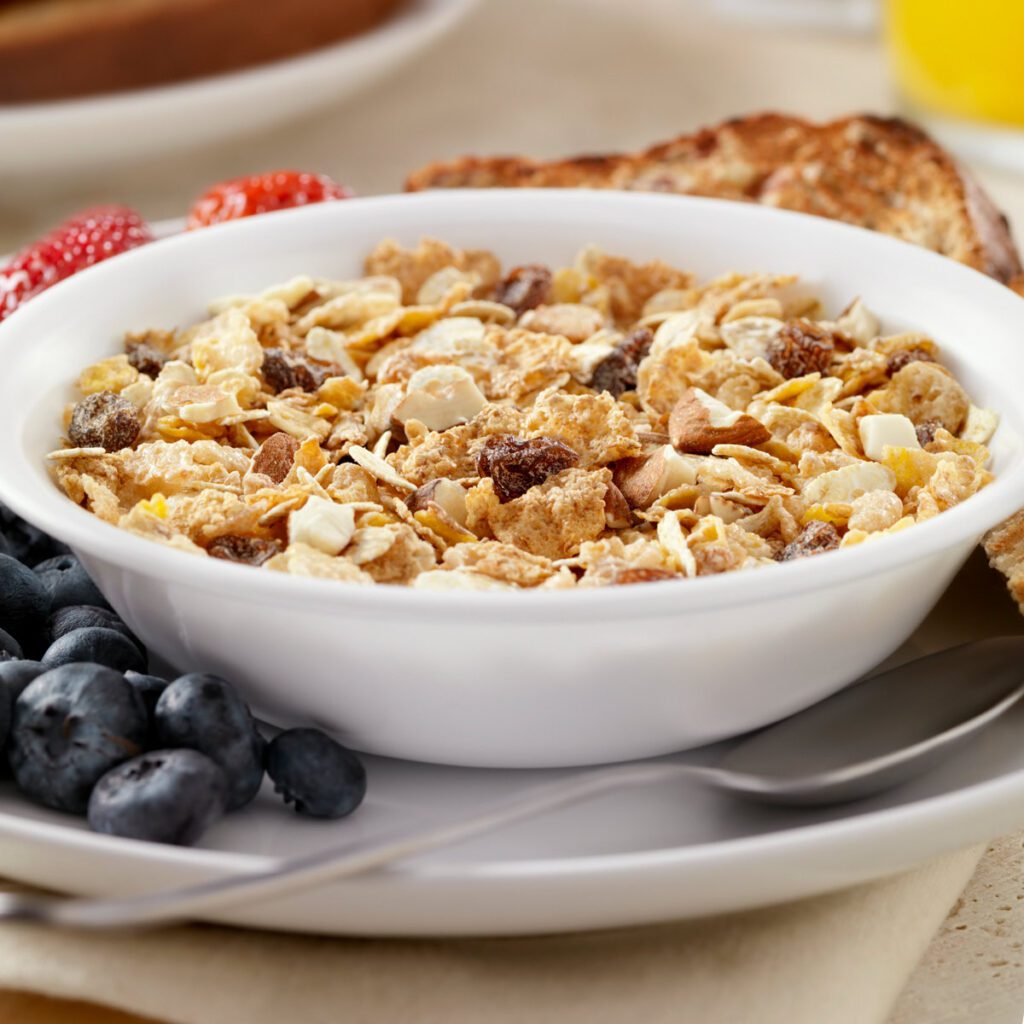Tips for Choosing a Nutritious Cereal
With hundreds of “healthy” cereal options on the shelf, it’s difficult to know which ones are truly good for you. Follow these guidelines for choosing the best.
Full PDF here.
Go for “whole.”
Look for whole grains in the list of ingredients–they should be first on the list (see our article on page 78). The healthiest cereals will be made from 100% whole grains, but if you don’t go 100%, at least make sure the first few ingredients do not include milled corn, corn meal, or rice.
Limit sugar.
Aim for 6 grams or less of sugar, and choose natural sugars (like dried cane syrup) over added sugars (like high fructose corn syrup). If you like your cereal sweet, consider adding natural honey or fresh fruit.
Check for protein.


Cereals made from whole grains offer some protein, because whole grains contain amino acids (the “building blocks” of protein). Nuts, seeds, and “refined proteins” such as soy protein isolate can also up the protein content. Ideally, aim for at least 5 grams of protein per serving.
Get your fiber.
Aim for up to 7 to 12 grams of fiber—fiber not only fills you up, but works to keep your blood sugar from spiking. Choose intact fibers (found naturally in whole grains and bran) over isolated fibers (oat, soy, and corn fibers). Isolated fibers have no proven health benefits.
Watch your servings.
Pay close attention to recommended serving size, which is often just a 1/2 cup – much smaller than the big bowl you like to pour. A truly nutritious cereal should be able to fill you up with just a regular serving size. If it doesn’t, try adding some nuts, fresh fruit, or a spoonful of peanut butter.

